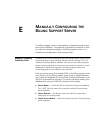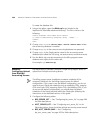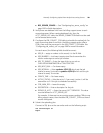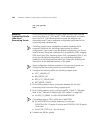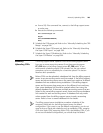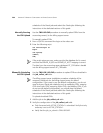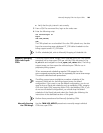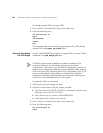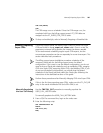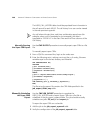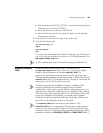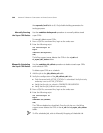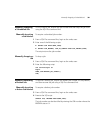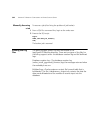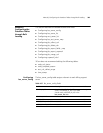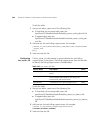
Manually Exporting Super CDRs 297
CWM.JOB_MERGE;
end;
The CDR merge runs as scheduled. Once the CDR merge runs, the
completed calls from the billing support server’s RT_CDR table are
merged into the RT_SUPER_CDR_STATUS table.
To drop a scheduled job, refer to Manually Dropping a Scheduled Job.
Manually Exporting
Super CDRs
The billing support server can export super CDRs into a text file (Super
CDRs are stored in the rt_super_cdr_status table). Once in a text file,
proprietary customer billing systems can import the data as needed.
3Com recommends scheduling regular super CDR exports, but the
cwe.outsuper procedure can be run separately for a one-time export. This
section describes both procedures.
The billing support server installation procedure schedules all the
necessary Oracle jobs for the billing support server for default
configuration. If you want to use the default configuration, you do not
need to do any Oracle job scheduling such as uploading CDRs, merging
CDRs into Super CDRs, exporting Super CDRs, and deleting CDRs. If you
do not use the default configuration, you should drop the default
schedules of the Oracle jobs and submit the Oracle jobs following the
instructions in the dedicated sections of this guide.
Perform these procedures after Manually Merging CDRs into Super CDRs.
If this is the first time exporting super CDRs, make sure the UTL_FILE_DIR
entry in the oracle initialization file (init<SID>.ORA) is set.
Manually Populating
the User Call History
Use the CWE.FILL_OUT procedure to manually populate the
USER_CALL_HISTORY table.
To manually populate the USER_CALL_HISTORY table:
1 From a SQL Plus command line, login as the cwbss user.
2 Enter the following script:
SET SERVEROUTPUT ON
BEGIN
CWE.FILL_OUT;
END;



